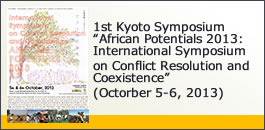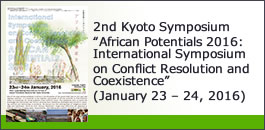Date: December 2 – 4, 2011
Venue: Silver Springs Hotel, Nairobi
Outline
In this research project, we are planning to have an international forum at least once every year in African countries. This is the first one, and the forum organizers asked all the participants to consider the possibilities and difficulties of basic idea of this research project, that is, African Potentials, and exchange views from different perspectives, and to share/create a new dimension of understanding.
In order to conduct productive discussions, the forum organizes sent the following three questions to all the participants beforehand, and asked to prepare a short research note of 2,000 to 3,000 words. The questions are:
- What is African Potentials that can materialize conflict resolution, reconciliation and social healing?
- Do you know any examples of trial in which African Potentials are utilized in conflict resolution and social healing?
- In conflict resolution, international frameworks (such as ICC) are often utilized in attempts to secure “universal” justice. What kind of relations is desirable between African Potentials and such international frameworks? How can they be articulated?
Program
(Click the title for its abstract, or Click here for all abstracts)
December 2
- 18:00-19:00 Registration at Ostrich Conference Room
- 19:00-21:00 Welcome Dinner at the Hotel
December 3
- 9:00-9:30 Itaru Ohta (Kyoto University)
- 1. African Potentials, Customary Knowledge and Institutions, and Persistent Face-to-face Interactions
- 9:30-9:55 Eisei Kurimoto (Osaka University)
- 2. Limits and Possibilities of “African Potentials” in Conflict Resolution and Co-existence: Towards an Endogenous Approach of Peace- building
- 9:55-10:20 Gebre Yntiso Deko (Addis Ababa University)
- 3. African Peace Potentials: Insights from Ethiopia
- 10:20-10:35 Break
- 10:35-11:00 Kennedy Mkutu (United States International University)
- 4. African Potentials for Conflict Mitigation in and around Kenya
- 11:00-11:25 Fekadu Adugna Tufa (Addis Ababa University)
- 5. Assessing “African Potentials” among the Pastoral Somali and Oromo in Southern Ethiopia
- 11:25-11:50 Mikewa Arunga Ogada (Centre for Human Rights and Policy Studies)
- 6. A Research Note on the Work of Clerics-Led Peace Committees in Kenya’s Coast
- 11:50-12:15 Haji Abdu Katende (Makerere University)
- 7. The Strength of African Conflict Resolution Potentials
- 12:15-13:35 Lunch Break
- 13:35-14:00 Samson Wassara (University of Juba)
- 8. “African Potentials” from South Sudan
- 14:00-14:25 Toshimichi Nemoto (Japan Tanzania Tours Ltd.)
- 9. Peaceful 50 years of Tanzania
- 14:25-14:50 Simwana Said (Tanzania Center for Foreign Relations)
- 10. Tanzania Conflict Management within Great Lakes Region and the Horn of Africa
- 14:50-15:05 Break
- 15:05-15:30 Naoki Naito (The University of Tokushima)
- 11. Coping with the State and Non-state Actors: Lessons from Local Peace Building Practices in Kenya
- 15:30-15:55 Toru Sagawa (Kyoto University)
- 12. Relational Networks and Peace-Making in East African Pastoral Societies (South Omo)
- 15:55-16:20 Simon Monoja Lubang (University of Juba)
- 13. Conflict resolution and potential in African context
- 16:20-16:35 Break
- 16:35-17:00 Edward K. Kirumira (Makerere University)
- 14. Local Communities as Agency in International Conflict Conciliation Frameworks: Re-visiting African Potentials
- 17:00-17:25 Motoji Matsuda (Kyoto University)
- 15. Beyond Romanticization of Customary Mechanism of Conflict Resolutions: Notes for Further Discussion
- 17:25-18:00 General Discussion
December 4
- 9:30-11:30 General Discussion
Agenda for General Discussion
On December 4, based on the 15 presentations made the previous day, intensive discussions were held on the following issues.
- What kind of relationship is, or should be, there between the state framework and the indigenous/customary/traditional conflict resolution mechanisms?
– Is it complementary, supportive, cooperative?
– To what extent are the indigenous mechanisms autonomous/independent? – Necessity of official legalization.
– Manipulation and exploitation of traditional mechanisms by state? Another form of “despotic decentralization”?
– Manipulation and exploitation of traditional mechanism by urban elites. Is it unavoidable?
– When state is antagonistic, or does not exist, what can be done? - How do we define the operational space of the customary mechanisms?
– Do they operate only in marginalized rural areas, at the community level, where there is a vacuum of state power?
– An alternative discourse or an engaging discourse in international conflict resolution framework? - After all, what are “African potentials” or knowledge (wisdom, philosophy, etc.) and practice that need to be utilized by Africans as agency, not as passive objects to be intervened?
– Do they include regional/national/civic/community/customary/individual frameworks? How are they articulated?
– Are they to be rooted in the livelihood of people or everyday living world? - Global/universal standards vs. African standards.
– Good customs and bad customs. Do customary laws abuse human rights? – Individualism vs. collectivism. - Conceptualization and definition: traditional, custom, justice, truth, peace, etc.
– How “traditional” are “traditional authorities” and “traditional mechanism”?
– Justice, restorative and retributive.
– Truth, microscopic (material) and dialogical (immaterial)
– Peace, positive and passive
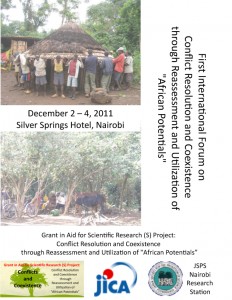

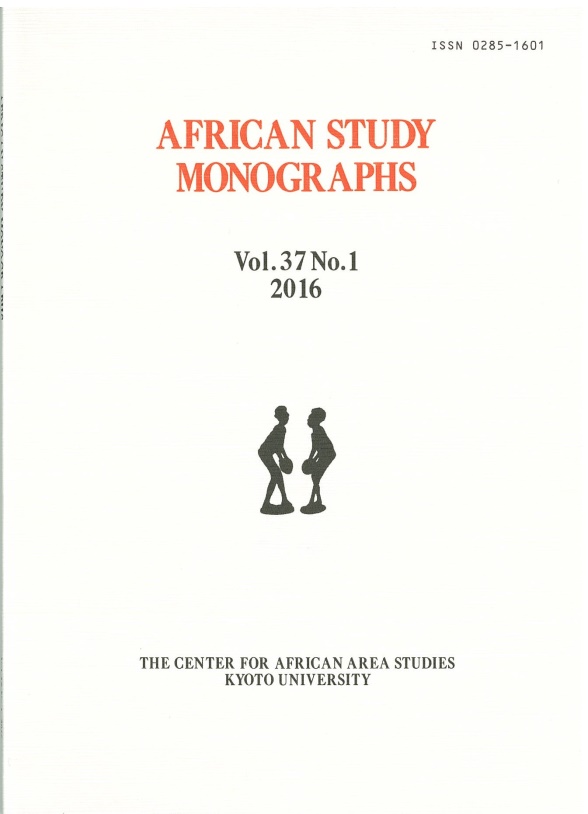
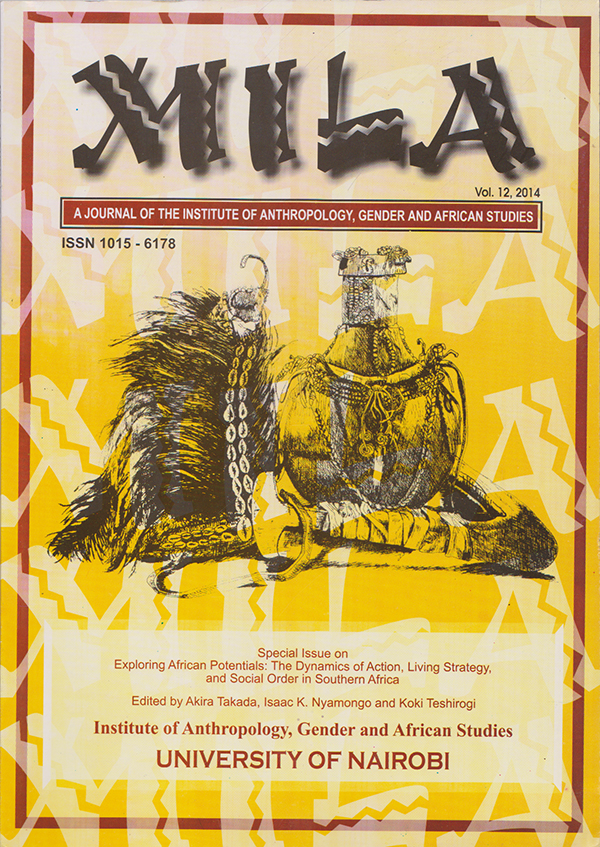 Exploring African Potentials, Mila Special Issue
Exploring African Potentials, Mila Special Issue